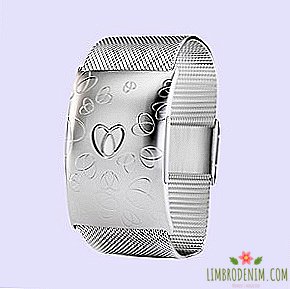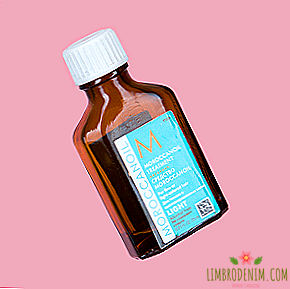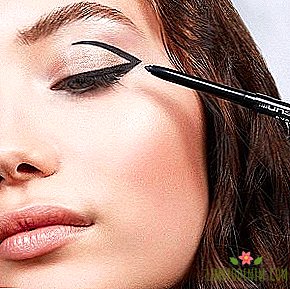How make-up has become a tool for social campaigns

Masha Vorslav
Makeup is known for this statement. Most often, this phrase is understood narrowly, they say, the decision to put on a wine lipstick, or the statement lips, is painted in sufficient courage and modernity. Of course. But make-up has a much larger social background than we used to think; it can be traced from the very times when people discovered whitening lead powder and learned how to cochineal blush. Only if before cosmetics was an indicator of wealth, today almost everyone has access to quality products, thanks to H & M and other worthy brands of the mass market. In other words, the make-up got rid of the burden of elitism and assumed new functions - including such an important one as drawing attention to social problems.
"No, I'm not getting married yet, but I am proud to take part in the campaign against child abuse," explains the hashtag #polishedman and the golden lacquer on his ring finger, the winner of the Bach show Sam Wood. Wood has 153 thousand subscribers on instagram, and his post has gained 8 thousand likes: less than a photo with a girl, but more than a selfie.
The campaign "Polished Man" was started by the founder of the YGAP charity organization Elliot Costello. In 2013, he visited Cambodia, where he met with 10-year-old Teya. That evening, Thea painted their hands with the same blue marker as a token of appreciation, and the next day, Costello found out more about Thea. The girl underwent rehabilitation after two years of sexual abuse from an employee of an orphanage who was sent to her mother after her father’s death in the hope that she would be safe there.
After this meeting, Costello came up with a social action: in honor of every fifth child who suffered from violence from adults, men paint the nail on one finger with any bright varnish. Why men? There are several explanations at once. According to statistics "Polished Man", 90% of sexual crimes against children are committed by men, and this makes the gesture of adequate men only more expressive. In addition, cosmetics in men in Western society are still perceived as something out of the ordinary, and an ordinary man with painted nails will cause, if not baththurt, then a large audience interest - and for the social campaign this is only a plus.
No less heartbreaking story behind the campaign "Don't Cover It Up", which was initiated by the British organization against domestic violence Refuge and personally Loren Luke. In the video, which is murderously similar to the typical tutorials of beauty bloggers, Luke appears with a bruised face and bruises and shows how tonal it is better to hide the bruises. “It may be a little painful, but nothing,” the girl cheerfully comments, touching the extensive fingal under the eye with the brush. In the last seconds, the video titled “How to look good in the morning” is cut off, because the heroine Lauren hears someone come home, and in fear turns off the webcam.
The campaign’s message may not even be clarified, but there are still credits: 65% of women suffering from domestic violence hide it and therefore cannot receive help. In an interview about "Don't Cover It Up", Luke explains that such violence can be not only physical, but psychological and financial. “In any case, when you feel your partner’s aggression is violence,” explains Luke and calls on all victims to remember that they are not alone, and to find the strength to ask for help.
Less provocative at first glance, methods in social networks also work with a bang. We all remember the #nomakeupselfie campaign, in which girls simply published selfies without makeup. The initiative also captured celebrities, so for the first six days in England alone, the participants managed to collect 8 million pounds. Almost all of them went to the cancer research center, although he had nothing to do with the organization of the action and only expressed surprise at the unprecedented increase in donations. By the way, the Make Good Feel Better organization chose makeup as a means of supporting women with cancer: the collaborators with makeup artists believe that the appearance they like helps women not to lose their presence of mind even in very difficult times.
In the wake of the popularity of women's #nomakeupselfie, a symmetrical "male" action appeared under the hashtags #fullmakeupselfie and #manupandmakeup. She had a similar goal - to draw attention to the underfunding of research on prostate cancer and neuroblastoma. Participation in it was obviously taken by men not without a sense of humor: you will not look at many selfies with inept make-up and curled up faces without a smile. True, not a single celebrity supported the action, which is why it faded out quite soon, having only been held in the top news for a few months.
Fight against poverty, diseases and other social problems help, of course, not the posts themselves in social networks, as it was not too lazy to remind Swedish UNICEF once. In her video "Likes Don't Save Lives", the boy Rahim sarcastically notes that now that the UNICEF FB page has collected 177,000 likes, you and your brother may be at risk of becoming ill with polio.
"Money saves lives, but not likes" (and reposts) - this simple truth should not be forgotten. But social support shares like "Polished Man", "Don't Cover It Up" and #nomakeupselfie should not be discounted: after all, their educational ability is invaluable. Problem solving begins precisely with their recognition and discussion: the more we explain what domestic violence is and how cancer can be calculated at an early stage, the more these phenomena are imprinted in memory and the more difficult it is to ignore them. Another thing is that one cannot limit oneself to talking only, but today, thank God, donation can be made with a few mouse clicks, and a discussion of the next inhuman act can be raised in a friendly chat - and in one.
Photo: Look Good Feel Better





